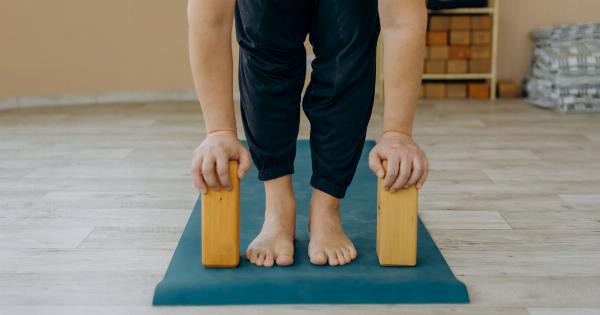Fitness is a journey that each individual embarks on, striving to discover their limits and push beyond them. A vital aspect of this journey is the fitness test, which is a measure of our physical capabilities and endurance.
What is a Fitness Test?
A fitness test is an assessment that evaluates various aspects of a person’s physical fitness, including strength, endurance, flexibility, and cardiovascular capacity.
It provides valuable insights into an individual’s overall fitness level and helps in formulating effective training plans.
Benefits of Fitness Tests
There are several benefits of incorporating fitness tests into your exercise routine:.
- Baseline Measurement: Fitness tests provide a starting point for evaluating your current fitness level. By establishing a baseline, you can effectively track your progress and set realistic goals.
- Identify Strengths and Weaknesses: Fitness tests evaluate different aspects of fitness, allowing you to identify areas that require improvement and capitalize on your strengths.
- Motivation: Regular fitness testing creates a sense of accountability and motivation. Seeing improvements in test results over time can be extremely rewarding and encourage you to push harder.
- Track Progress: Fitness tests enable you to track your progress accurately. By retesting at regular intervals, you can objectively measure improvements and make necessary adjustments to your training program.
- Prevent Plateaus: Fitness tests help in identifying performance plateaus, where progress slows down or halts. With this knowledge, you can modify your training methods to overcome plateaus and continue making progress.
- Individualize Training: Fitness tests provide valuable information about your body’s strengths and weaknesses, allowing you to tailor your training program to suit your specific needs and goals.
Types of Fitness Tests
There are various types of fitness tests that assess different aspects of physical fitness. Some commonly used fitness tests include:.
1. Cardiovascular Endurance Test
This test measures your body’s ability to take in, transport, and utilize oxygen efficiently during prolonged physical activity.
It typically involves activities such as running, cycling, or swimming, with heart rate and oxygen consumption being monitored.
2. Strength Test
This test evaluates your muscular strength and endurance. It may involve exercises such as push-ups, pull-ups, or weightlifting to assess the maximum force your muscles can exert or the number of repetitions you can perform.
3. Flexibility Test
Flexibility tests measure the range of motion around specific joints in your body. These tests often include exercises such as a sit-and-reach test, where you stretch towards your toes while sitting on the floor.
4. Body Composition Test
This test determines the percentage of fat, muscle, bone, and water in your body. Various methods, such as skinfold measurements or bioelectrical impedance, may be used to assess body composition.
5. Agility Test
Agility tests measure your ability to quickly change direction and move efficiently. These tests typically involve activities like shuttle runs, ladder drills, or cone drills.
Preparing for a Fitness Test
To get the most accurate results from your fitness test, it is essential to adequately prepare. Here are some general guidelines:.
- Stay Consistent: Maintain your regular exercise routine leading up to the test. Abrupt changes in activity levels can influence the results.
- Stay Hydrated: Drink enough water in the days leading up to the test to ensure proper hydration.
- Get Adequate Rest: Prioritize sleep to ensure your body and mind are well-rested before the test.
- Eat Well: Follow a balanced diet with adequate protein, carbohydrates, and healthy fats to fuel your body for optimal performance.
Interpreting Fitness Test Results
Interpreting fitness test results requires considering various factors, such as age, gender, and personal fitness goals. Consulting with a fitness professional or trainer can help you understand your results and develop an appropriate action plan.
Conclusion
Fitness tests are valuable tools that help us understand our physical capabilities, measure progress, and set realistic goals.
By incorporating these tests into our fitness journeys, we can push ourselves further, overcome plateaus, and achieve levels of fitness we never thought possible. Remember, the true measure of success lies not in how far we can go, but in how far we are willing to push ourselves.































